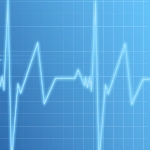Do WiFi signals pose a threat to your body and your health?–PC Pitstop
Is WiFi Harmful to Your Health
Anand Khanse for The Windows Club
Radio waves have always been a subject of study as they help in many ways, such as communications and GPS. The same radio waves allow you to work wireless in computer technology. WiFi too is based on radio waves. WiFi is so common today that you are immersed in WiFi waves all day and night. Can your body sustain damages due to WiFi signals, if any? Let’s check if WiFi is really dangerous and what are the health hazards of WiFi signals.
Is WiFi safe for your health or harmful
I need not tell you how WiFi works. You know that WiFi signals start from the router and end up at the reception point of your WiFi enabled device. It’s the same case with Bluetooth, cellphones etc. However, unlike cellphones and Bluetooth, WiFi signals do not accumulate at a certain part of your body. In case of cellphones, it is the ear where you place the phone and it is always either right or left – which is repeated per call. The more you talk, the more exposure at a certain point of your brain. Skull can’t prevent cellphone signals from penetrating into the brain.
The point here is, WiFi are radio waves that may cause problems but since there is no fixed point of body touching the devices all the time, the risk is quite low. Another factor is that there is some distance between your body and device, the risk falls to a lower quotient.
A router is placed either on a table or on wall. You do not have any business going again and again to the router and standing there for long. Likewise, the devices (phones, tablets) etc. are not touching your body at a certain part all along day and night.
You do carry your phones to your bed and probably keep it near your head at night. It sits there all night and hence may create problems (mostly due to cellular signals) but otherwise, the devices such as laptops and tablets etc. keep on changing positions and thus, avoid accumulation of WiFi RF (radio frequency) at any particular part of your body, thereby reducing the health hazards of WiFi signals.



